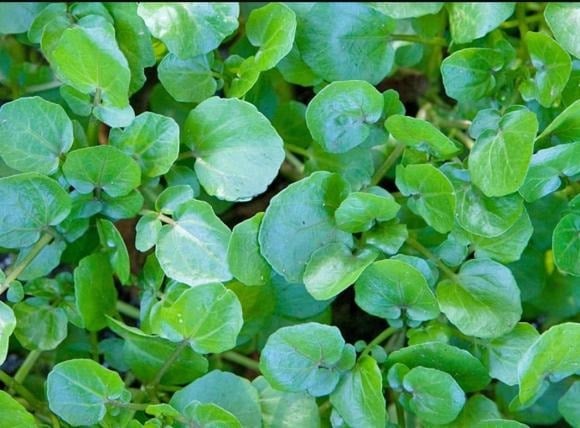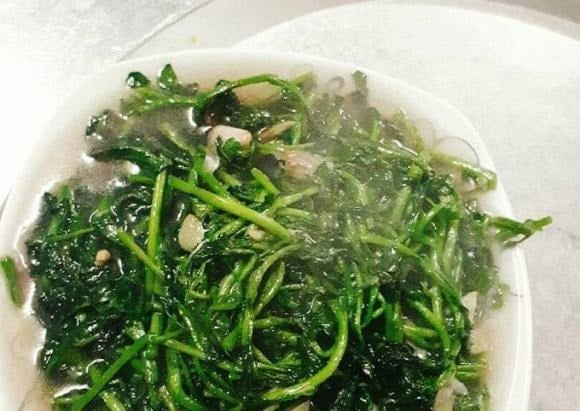Watercress, or Nasturtium officinale, is a semi-aquatic plant native to Europe and Asia. It has a long history of cultivation as a vegetable and for its medicinal properties. With a nutty and slightly spicy flavor, watercress is a popular ingredient in many Vietnamese dishes and offers an impressive range of health benefits.

According to research by the US Centers for Disease Control and Prevention (CDC), watercress ranks first among vegetables and fruits with a perfect nutrition score of 100. This ranking surpasses the scores of spinach and cabbage. The study particularly highlights watercress’s impressive cancer-fighting potential, along with its overall high nutritional value.
Watercress is a creeping or floating plant that grows to a height of 20-40 cm. Its leaves are dark green and feathery, with small white flowers that cluster at the end of the branches. The plant is rich in phenethyl isothiocyanate (PEITC), a compound proven to inhibit the development and formation of cancer cells. It also contains abundant vitamin C, which boosts the body’s cancer-fighting abilities by protecting against cell damage caused by free radicals.
Key Benefits of Watercress:
Cancer Risk Reduction: Watercress, along with broccoli and turnips, is among the vegetables with the highest PEITC content, making it an effective cancer-fighting food.
Immune System Boost: Rich in vitamin C and A, watercress enhances immunity and reduces the risk of infections. Vitamin A plays a crucial role in maintaining the body’s natural immune defenses, shielding it from harmful environmental factors.

Cardiovascular Health: Regular consumption of watercress is linked to a reduced risk of cardiovascular diseases. It is low in sodium and saturated fat, and rich in quercetin, which helps lower blood pressure, improve blood circulation, and reduce cholesterol levels.
Eye Health: Watercress contains the carotenoids lutein and zeaxanthin, essential for protecting against age-related macular degeneration, a leading cause of vision loss in older adults.
Bone Health: Watercress provides calcium, magnesium, vitamin C, and vitamin K, all vital for bone formation and maintenance. Regular consumption supports bone regeneration and promotes overall bone health.
Precautions: While watercress is generally safe, some precautions apply. Those on blood-thinning medication should exercise caution due to the vitamin K content. Individuals with a history of allergies to watercress should refrain from consuming it to prevent adverse reactions. Additionally, watercress contains oxalates, which can contribute to kidney stone formation in susceptible individuals, so consumption should be limited in this case.
In conclusion, watercress is a versatile and nutrient-rich ingredient that, when consumed appropriately and in alignment with individual health needs, can be a powerful ally in maintaining and enhancing overall health and well-being.
Trading Coffee for Green Tea: Unlocking 4 Special Health Benefits
“Trade in your coffee for a cup of matcha and unlock a world of surprising health benefits. Prepare to be intrigued as we delve into the wonders of this ancient brew and the positive transformations it can bring to your life. Get ready to explore a whole new perspective on your daily routine and discover why this simple swap might just be the key to a healthier you.”
High Cholesterol Leads to Heart Disease and Stroke, but This Affordable Fruit, Sold in Vietnamese Markets, is a Natural Enemy
The humble fruit, a familiar ingredient in many Vietnamese dishes, is not just a flavor enhancer but also a powerful ally in the fight against high cholesterol and cancer. When used correctly, it can be an effective tool in maintaining a healthy lifestyle and reducing the risk of life-threatening diseases.



































